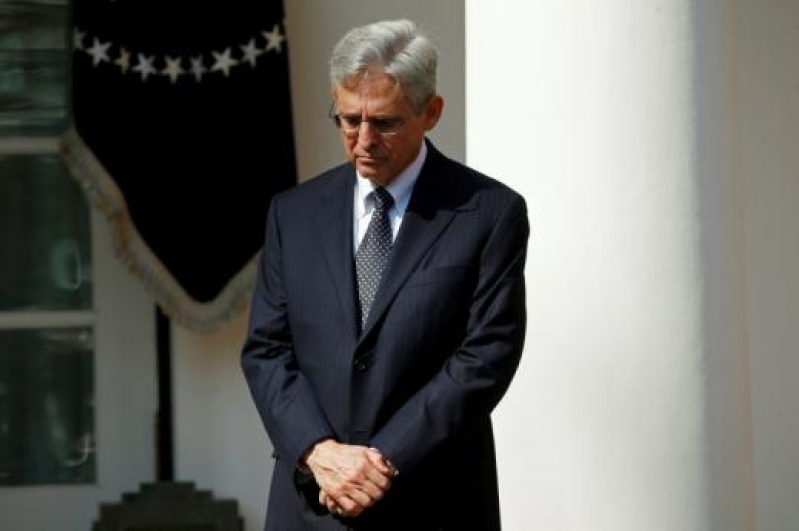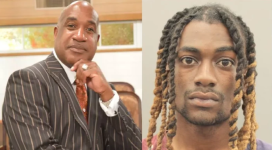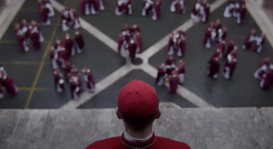
Because religious-associated decisions rank highly in the most debated issues among U.S. Supreme Court justices, some Americans wonder how the Jewish faith of newly nominated Merrick Garland, as well as his record on religious freedom cases, would affect the outcomes of the highest court of the nation. Garland would be the current court's fourth Jewish justice if confirmed.
As reported by The Gospel Herald: President Obama Nominates Merrick B. Garland To Supreme Court: 'The Supreme Court is Above Politics'
President Barack Obama nominated Garland Wednesday to replace the vacancy left when Justice Antonin Scalia died Feb. 13. See The Gospel Herald coverage: Antonin Scalia: Supreme Court Justice Found Dead, Called 'Man of God, Patriot'
If Garland is confirmed, the Supreme Court would have five Catholic justices (Chief Justice John Roberts and Associate Justices Clarence Thomas, Anthony Kennedy, Samuel Alito and Sonia Sotomayor) and four Jews (Garland and Associate Justices Ruth Bader Ginsburg, Elena Kagan and Stephen Breyer).
Jews represent about 2 percent of America's population, and would be holding 44 percent of the seats on the court with Garland's addition.
The last time a Protestant was nominated to the court was in 1990, when President George H.W. Bush nominated Judge David Souter, said Richard Garnett, a law and political science professor at the University of Notre Dame.
"On the one hand, we're incredibly proud. He's (Garland) a Reform Jew and he belongs to one of our synagogues," Rabbi Jonah Dov Pesner, head of the Religious Action Center of Reform Judaism, the political arm of the largest branch of Judaism in the U.S. told Religion News Service. "We're happy for him and it's a wonderful thing for our movement.
"At the same time, one's faith has no bearing on one's qualifications to be a Supreme Court justice," said Pesner, whose group has criticized Senate Republicans for stating they will not consider any Obama nominee to the court.
The religion of a justice shouldn't matter, and for the most part it hasn't, said Curt Levey, president of the Committee for Justice, a watchdog group that opposes activist judges, as reported by Religion News Service.
One's religious orientation is not determinative, much like race, Levey stated. "Most African-Americans are liberal, but that doesn't make Justice (Clarence) Thomas any less conservative."
Chicago-born Garland, 63, was raised in the faith of his mother, nee Shirley Horowitz, who was the director of volunteer services at the Council for Jewish Elderly in Chicago. He and his wife, nee Lynn Rosenman, were married in 1987 at the Harvard Club in New York City by a Reform rabbi, Charles Lippman, according to their wedding announcement in The New York Times.
At the White House on Wednesday, after Obama announced Garland as his Supreme Court pick in the Rose Garden, the nominee shared his family's Jewish background of grandparents leaving a settlement at the border of Western Europe and Russia, in the early 1900s, to flee anti-Semitism.
Garland is now chief judge on the U.S. Court of Appeals for the District of Columbia Circuit. In his 19 years on this court, cases related to religious freedom crossed his docket several times, reports The Washington Times. In four cases The Post emphasized, Garland sided twice against people who said they were victims of religious discrimination, and twice in favor. The first case was about whether federal prisoners are entitled to Communion wine as part of their First Amendment rights to exercise religion, but prisoners consuming alcohol was against the prison's policy. The second case was about if an employer has to allow employees to avoid Sunday shifts to avoid religious discrimination. The third case came because chaplains from some Christian denominations said the Navy was discriminating against them. The fourth case concerned if the Affordable Care Act's contraception mandate was unfair to religious nonprofits.
The other candidate considered a likely choice for Obama's nominee was also not Protestant, or Christian for that matter, in a nation that is 70 percent Christian, the largest group of which is Protestant. Judge Sri Srinivasan, who sits on the same court as Garland, would have been the court's first Asian-American and Hindu justice, reports RNS.
"People must be confident that a judge's decisions are determined by the law, and only the law," Garland said as he accepted the nomination.







